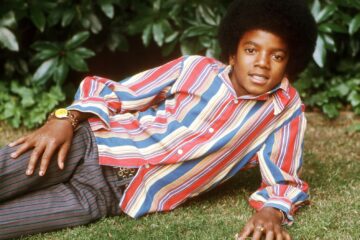Mikal Gilmore in Rolling Stone:
 He was, in the end, precisely what he claimed and struggled to be: the biggest star in the world. If there had been any doubt, it ended on the afternoon of June 25th, 2009, when the news broke that Michael Jackson had died of apparent cardiac arrest in Los Angeles at age 50. The outpouring of first shock, then grief, was the largest, most instantaneous of its kind the world had ever known, short of the events of September 11th, 2001. Though the deaths of John F. Kennedy and Martin Luther King Jr. affected history more, and the deaths of Elvis Presley, John Lennon and Kurt Cobain signified the end of epochs, no single death has ever moved so fast around the globe, or to the forefront of all news, as swiftly as Michael Jackson’s.
He was, in the end, precisely what he claimed and struggled to be: the biggest star in the world. If there had been any doubt, it ended on the afternoon of June 25th, 2009, when the news broke that Michael Jackson had died of apparent cardiac arrest in Los Angeles at age 50. The outpouring of first shock, then grief, was the largest, most instantaneous of its kind the world had ever known, short of the events of September 11th, 2001. Though the deaths of John F. Kennedy and Martin Luther King Jr. affected history more, and the deaths of Elvis Presley, John Lennon and Kurt Cobain signified the end of epochs, no single death has ever moved so fast around the globe, or to the forefront of all news, as swiftly as Michael Jackson’s.
In the days that followed, news channels, TV specials, feature magazines and front pages tried to understand what happened. Not so much the events of Jackson’s death – though there was confusion surrounding that – but rather the nature of his life and legacy. He was a man with a complicated personality, a man with a history that was both glorious and notorious. He was not a man that anybody felt nothing about. The most affecting statement I heard came from a young black man, Egberto Willies, whose self-chronicled video statement aired on CNN: “I grew up,” Willies said, and paused a beat, “on Michael Jackson. I loved … Michael Jackson. I hated … Michael Jackson. I admired … Michael Jackson. I was ashamed … of Michael Jackson. I was sorry … for Michael Jackson. I was proud … of Michael Jackson.”
More here. (Note: In honor of Black History Month, at least one post will be devoted to its 2024 theme of “African Americans and the Arts” throughout the month of February)
